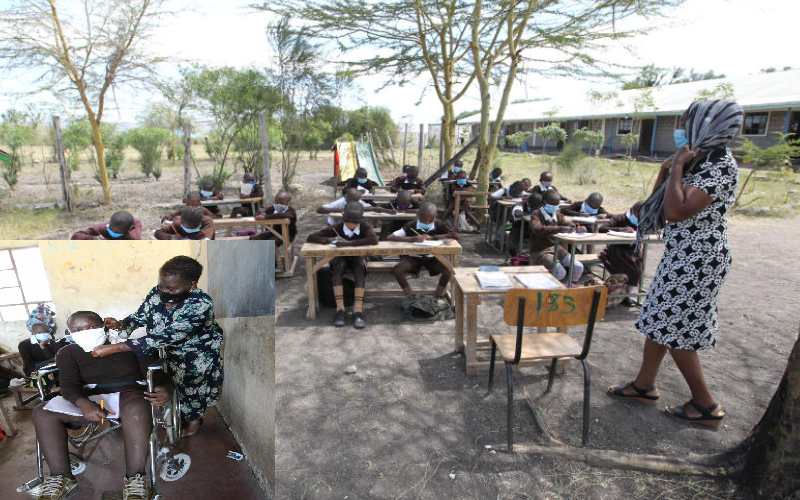×
The Standard e-Paper
Fearless, Trusted News

Class Two Pupils at Kanaani Inclusive Primary School, Athi River, attend a lesson under a tree. INSET: The school’s headteacher, Esther Masila, assists Moses King’oo, a Class Six pupil to wear his mask properly yesterday. [Jonah Onyango, Standard]
At Kanaani Inclusive Primary school in Athi River, a learner in a wheelchair struggles to adjust his face mask. A teacher goes to his side to help him and it takes a while before they get it right.